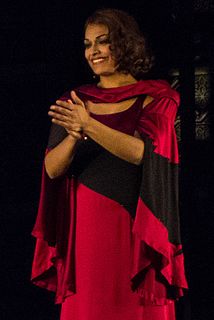
Julia Agrippina, also referred to as Agrippina the Younger, was a Roman empress.
Agrippina is an ancient Roman cognomen and a feminine given name. People with either the cognomen or the given name include:
Pygmalion or Pigmalion may refer to:
A Night at the Opera may refer to:

Ollia better known as Poppaea Sabina was a Roman Empress as the second wife of the Emperor Nero. She had also been wife to the future emperor Otho. The historians of antiquity describe her as a beautiful woman who used intrigues to become empress.
Doctor or The Doctor may refer to:

Agrippina is an opera seria in three acts by George Frideric Handel with a libretto by Cardinal Vincenzo Grimani. Composed for the 1709–10 Venice Carnevale season, the opera tells the story of Agrippina, the mother of Nero, as she plots the downfall of the Roman Emperor Claudius and the installation of her son as emperor. Grimani's libretto, considered one of the best that Handel set, is an "anti-heroic satirical comedy", full of topical political allusions. Some analysts believe that it reflects Grimani's political and diplomatic rivalry with Pope Clement XI.
Tesla most commonly refers to:
The queen of spades is a playing card in the standard 52-card deck.

Danielle de Niese is an Australian-American lyric soprano. After success as a young child in singing competitions in Australia, she moved to the United States where she developed an operatic career. From 2005 she came to widespread public attention with her performances as Cleopatra in Giulio Cesare at Glyndebourne, England.
Lost Highway may refer to:
Chibi most often refers to:

Mio figlio Nerone, released in the US as Nero's Mistress is a 1956 Italian historical comedy film directed by Steno and starring Alberto Sordi, Vittorio De Sica, Gloria Swanson and Brigitte Bardot, with cinematography by Mario Bava. It depicts a visit by the Roman Emperor Nero and his entourage to a coastal villa.

Agrippina condotta a morire or Dunque sarà pur vero, HWV110, is a dramatic secular cantata for soprano, two violins and continuo, composed by George Frideric Handel while he was in Italy, at some time between 1707 and 1708. The anonymous text depicts Roman empress Agrippina the Younger on the way to her execution, which was ordered by her son, the emperor Nero, whom she had schemed to put on the throne. The cantata is approximately fifteen minutes in length; its title may be translated as "Agrippina condemned to die".
Jennifer Rivera is an American mezzo-soprano who has had an active international performance career in operas and concerts since the early 2000s.
Vipsania was the name of the first wife of Roman emperor Tiberius.
This page is based on this
Wikipedia article Text is available under the
CC BY-SA 4.0 license; additional terms may apply.
Images, videos and audio are available under their respective licenses.





